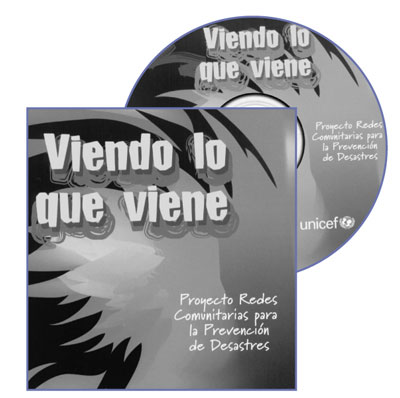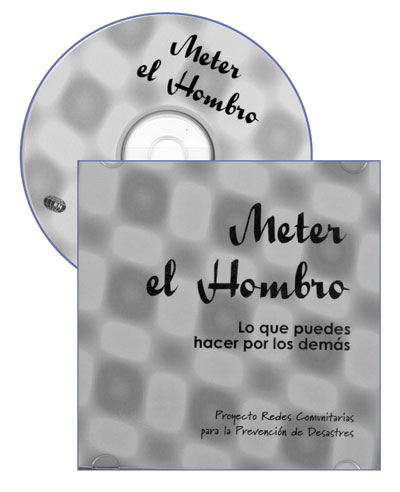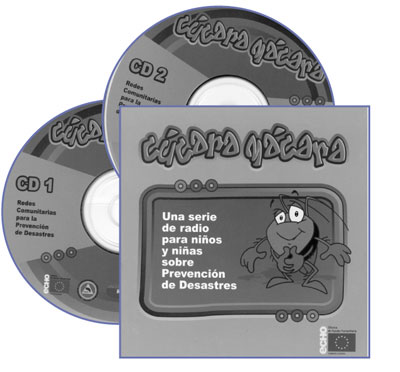

Latin America and the Caribbean
 |
 |
| International
Strategy for Disaster Reduction Latin America and the Caribbean |
Newsletter
ISDR Inform - Latin America and the Caribbean |
 |
|
Multimedia
|
| CD-ROM Project: Community Networks for Disaster Prevention These 3 CDs include role plays from a youth workshop conducted as part of the project entitled “Community Networks for Disaster Prevention,” which is currently underway in the Cañas-Lajas, Pirrís-Parrita and Reventazón-Parismina river basins. The National Commission for Risk Prevention and Emergency Response (CNE) of Costa Rica, the United Nations Children's Fund (UNICEF) and Radio Netherland are implementing the project with the financial support of the European Commission Humanitarian Office (ECHO) in the framework of its Disaster Preparedness Program (DIPECHO). Meter el Hombro: lo que puedes hacer por los demás (Pitching in: what you can do for others) Chapters: Viviendo lo que viene (Experiencing what may come) Chapters: Cúcara Mácara (Eeny meeny miney
moe) “Cúcara Mácara”, named after the traditional game, has many things to teach humans about the creation of a culture of disaster prevention. The information contained in each tale is based on the principles applied by the National Commission for Risk Prevention and Emergency Response (CNE) of Costa Rica, as well as on the socio-affective methodology called “Return to Happiness”, used by UNICEF when working with children and adolescents. For additional information, please contact:
|
 |
 |
 |
| © UN/ISDR |